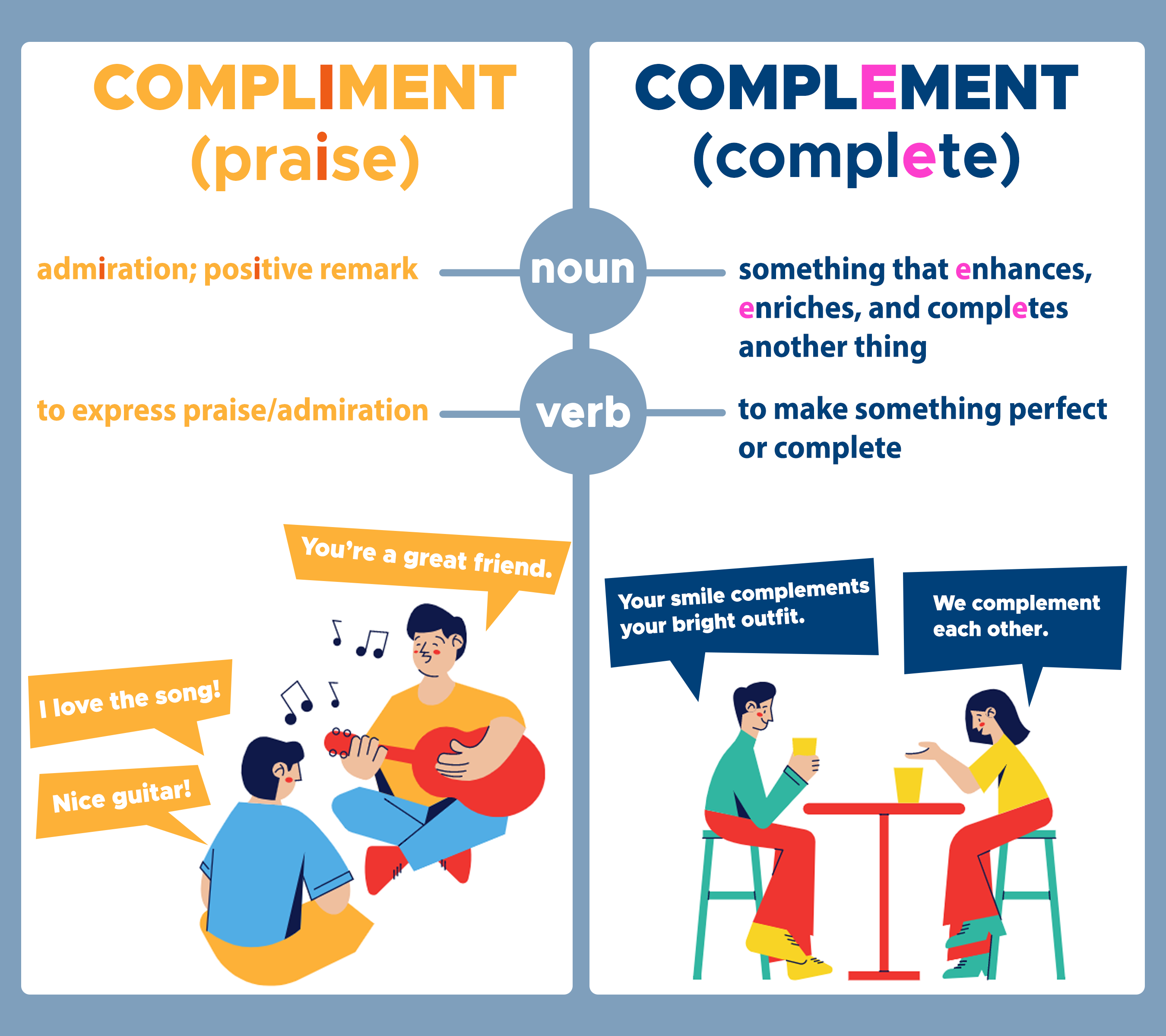Compliment Vs Complement
Have you ever found yourself pausing, a tiny bit unsure, when trying to pick between 'compliment' and 'complement'? It happens to the best of us, truly. These two words, sounding so alike, can sometimes trip up even the most seasoned speaker or writer. The good news is that sorting out this little puzzle is easier than you might think, and we are going to get it all straightened out right now, so you can feel completely confident every single time you use either one.
The thing is, these terms, 'compliment' and 'complement', share a similar sound, which is that main reason for the mix-up, isn't it? They even, in a way, had some shared meanings a long, long time ago, which just adds to the slight confusion. But over time, their paths have gone in different directions, meaning they now serve very distinct purposes in our everyday language. Knowing the small but significant difference will make your writing and speaking much clearer, and you will, in fact, sound like a true word wizard.
This guide is here to clear up the 'complement versus compliment' question for good, offering simple ways to remember which word to use when. We will look at what each word means, how they work in sentences, and give you plenty of examples, so you can really get a feel for them. It is, basically, about making sure your words always hit the mark, expressing exactly what you mean, without any hesitation. So, let us get to it and make these two words your good friends.
Table of Contents
- What is a Compliment?
- The Essence of a Complement
- Why Do We Mix Up Compliment and Complement?
- Compliment as a Noun and a Verb
- Complement as a Noun and a Verb
- Can We Really Tell the Difference Between Compliment and Complement with Examples?
- How to Remember the Distinction Between Compliment and Complement
- Putting It All Together - Compliment vs Complement
What is a Compliment?
A 'compliment' is, quite simply, a kind and thoughtful remark that shows you like something or someone, or that you think highly of them. When you give someone a compliment, you are expressing your good feelings, your admiration, or your warm regard for them, or perhaps for something they have done or created. It is, in a way, a little verbal gift, meant to make someone feel good about themselves or their efforts. For example, telling a friend that their new haircut looks wonderful is giving them a compliment, or saying that a meal tasted absolutely delicious is also a form of praise, isn't it?
This word, 'compliment', with its letter 'i' right there in the middle, often has to do with expressing positive thoughts about another person or their actions. It is about offering a polite expression of esteem, a bit of praise, or a show of affection. When someone says, "Your presentation was really insightful," that is a compliment. Or, if a guest tells the host, "What a lovely home you have," that is, in fact, a very common way to give a compliment. It is about making a pleasant observation that lifts someone's spirits, which is, honestly, a rather nice thing to do.
Consider the feeling you get when someone offers you a genuine compliment; it is usually a good one, right? It makes you feel seen, appreciated, and perhaps a little more confident. This word captures that exchange of positive sentiment. For instance, if a colleague says, "Your problem-solving skills are quite impressive," they are giving you a compliment, recognizing your abilities. Or, if a child draws a picture and you say, "That is a beautiful drawing," you are complimenting their artistic effort. It is all about acknowledging something good, something worth mentioning, and sharing that positive observation with another person, which is, essentially, what this word is all about.
The Essence of a Complement
Now, a 'complement' is something quite different, even though it sounds the same. This word, with its letter 'e' in the middle, refers to something that completes another thing, making it whole or even

Compliments

Complement vs. Compliment: What's the Difference? - ESLBUZZ

Compliment vs. Complement: the Difference, Illustrated - Drawings Of...